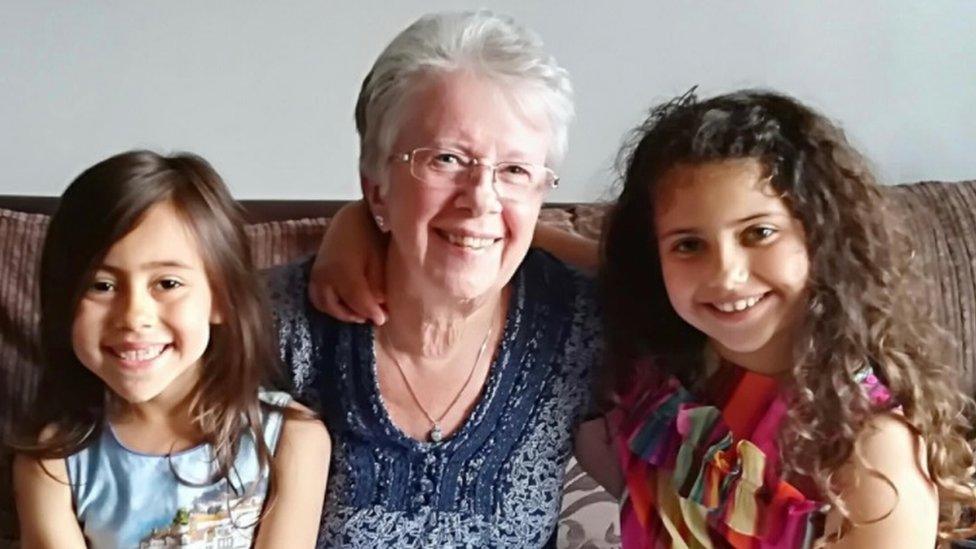Covid: Bus and train firms must decide whether to require masks
- Published
- comments
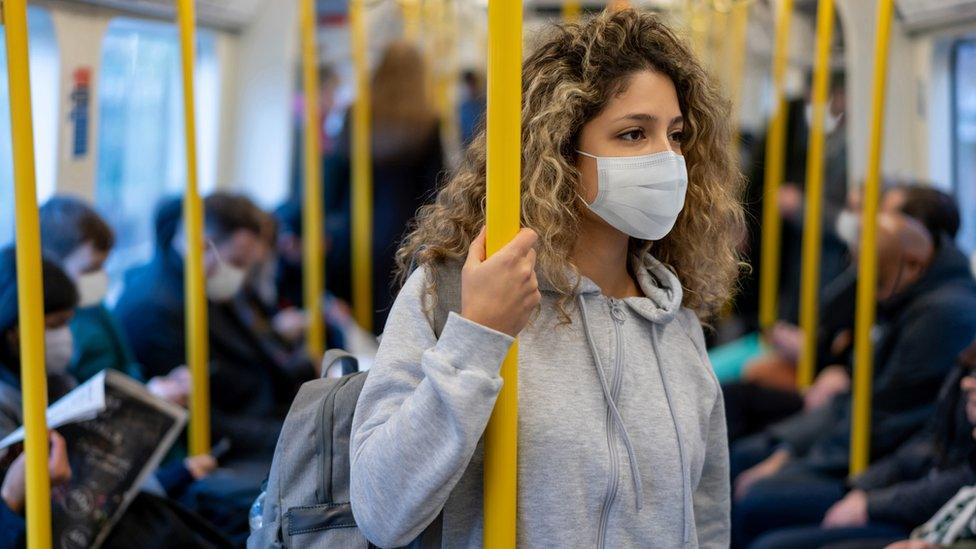
The government has said bus and train companies must decide whether passengers have to wear face coverings on their services from Monday, when Covid rules are relaxed in England.
Face masks have been mandatory on public transport for the past year to reduce the spread of the virus.
But those rules will be replaced with government guidance advising passengers to wear masks only on busy services.
Transport firms will be left to decide whether to enforce that advice and how.
Health Secretary Sajid Javid said masks would still be "recommended" on public transport, but people without a face covering would no longer be fined after restrictions are eased on 19 July.
Nevertheless, bus and train companies will still be able to turn away passengers who refuse to wear one - unless they are exempt.
The Mayor of Greater Manchester, Andy Burnham, said some of the 3.8m people classed as clinically vulnerable would be "fearful" to go on public transport if masks were not compulsory.
He told BBC Radio 4's Today programme he had not yet taken the decision whether to require masks on trams in Manchester as he wanted to avoid adding to people's confusion.
Treasury Minister Stephen Barclay told BBC Breakfast the emphasis was now on "trusting the British public" to take a cautious approach and there would be specific guidance for vulnerable people.
London Mayor Sadiq Khan said the safest option would be to continue to legally require people to wear masks on public transport.
His comments came as Labour criticised the government's approach to unlocking in England as "high risk" and "fatalistic".
While virtually all legal restrictions in England will be lifted on Monday, some guidance will remain.
There will no longer be any limits on how many people can meet and the 1m-plus distancing rule will be removed.
Nightclubs will also be allowed to reopen for the first time since March 2020 and capacity limits will be removed for all venues and events.
But nightclubs and other venues with large crowds will be encouraged to use Covid status certification - so-called domestic vaccine passports - "as a matter of social responsibility", Prime Minister Boris Johnson said on Monday.
Government guidance to work from home where possible will be lifted, but ministers are encouraging a gradual return to the workplace.
On face coverings, Mr Johnson said: "We expect and recommend that people wear a face covering in crowded and enclosed spaces where you come into contact with those you don't normally meet, such as on public transport."
Asked if Monday's rule changes were irreversible, as has been repeatedly stated, Mr Johnson said he hoped they were but "we must rule nothing out".
And in the Commons, Mr Javid said the government will "have a review" in September "to make sure that we're properly set up for autumn and for winter".


Transport companies have been weighing up whether to mandate masks or not. If you're flying, chances are you will still need to wear one; many airlines have decided to keep masks as a requirement for travel.
But most train, bus and coach operators in England will now decide they won't be mandatory, following the lead set by rail and passenger groups.
Companies will still ask passengers to wear masks when services are busy. But there's concern among many transport operators that a blanket requirement could make people think that public transport is more dangerous than other indoor settings, like restaurants and pubs. We haven't yet heard from the London Mayor about whether masks will be required on Transport for London-run services.
Wales and Scotland both still require anyone travelling on public transport to wear a mask by law, meaning that those taking services that cross the border from England will have notices reminding them to wear a face covering unless exempt. It is the second time this has happened during the course of the pandemic.

The Confederation of Passenger Transport - a trade group representing bus and coach companies - said passengers will find it "difficult to understand" why the prime minister has "singled out public transport as somewhere to wear a face covering when a range of other activities share its characteristics."
The group said it wanted clear guidance for operators and customers, adding that it was important to respect everyone's right to choose whether to wear a face covering once restrictions had eased.
The Rail Delivery Group, which represents train companies, said its members would ask passengers to wear face coverings in busy indoor settings "out of respect for others".
It said enhanced cleaning would continue after 19 July and train companies would provide better information about how busy services are.

Wales' First Minister Mark Drakeford confirmed masks would continue to be required on public transport and in healthcare settings "even if" the nation relaxes restrictions, which are due to be reviewed, external on 15 July.
Rules regarding face coverings are due to be considered next month in Northern Ireland, which is due to ease some Covid measures on 26 July.
Scottish First Minister Nicola Sturgeon is due to make an announcement about restrictions on Tuesday. Scotland is expected, external to move to level 0 - the lowest level of restrictions in its roadmap - on 19 July and lift most legal restrictions on 9 August.
The prime minister said it was vital to proceed with "caution" in England after 19 July, warning "this pandemic is not over" .
The peak of the current wave is not expected before mid-August and could lead to between 1,000 and 2,000 hospital admissions per day, according to government scientists.
Central estimates from modellers advising the government also show that Covid deaths are expected to be between 100 and 200 per day at the peak, although there is a large amount of uncertainty.
On Monday, the UK recorded 34,471 new cases, as well as six deaths within 28 days of a positive test.
It was the sixth consecutive day that cases were above 30,000.
The number of deaths recorded on Mondays are often lower due to reporting lags over the weekend.
More than 45.9 million people - or 87% of adults in the UK - have now had at least one dose of a Covid-19 vaccine. And more than 34.8 million - around two-thirds of adults - have had both doses.

SCRUM V RUGBY: All the latest Welsh rugby news with Gareth Rhys Jones
QUEERTOPIA: GB rower Kyra Edwards shares her big and bold suggestion

- Published16 March 2022
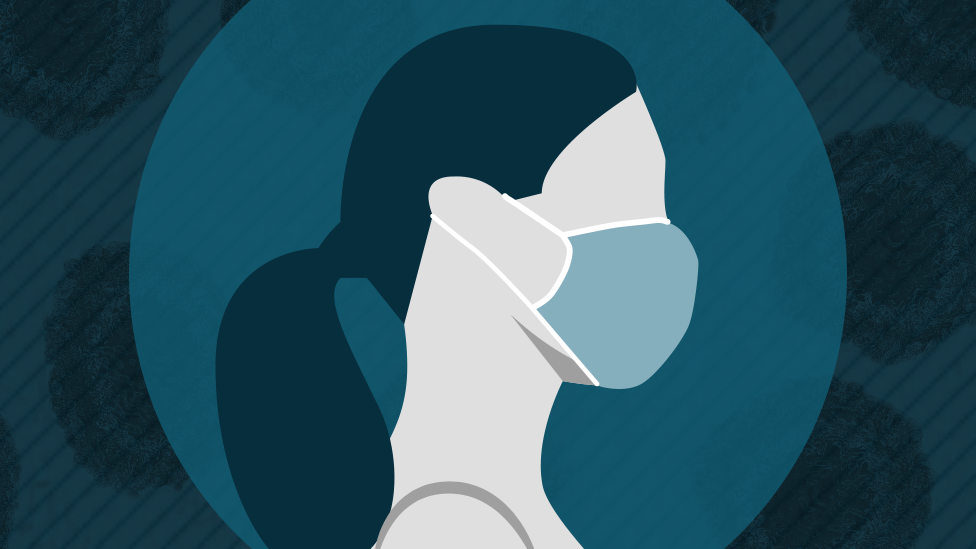
- Published9 July 2021
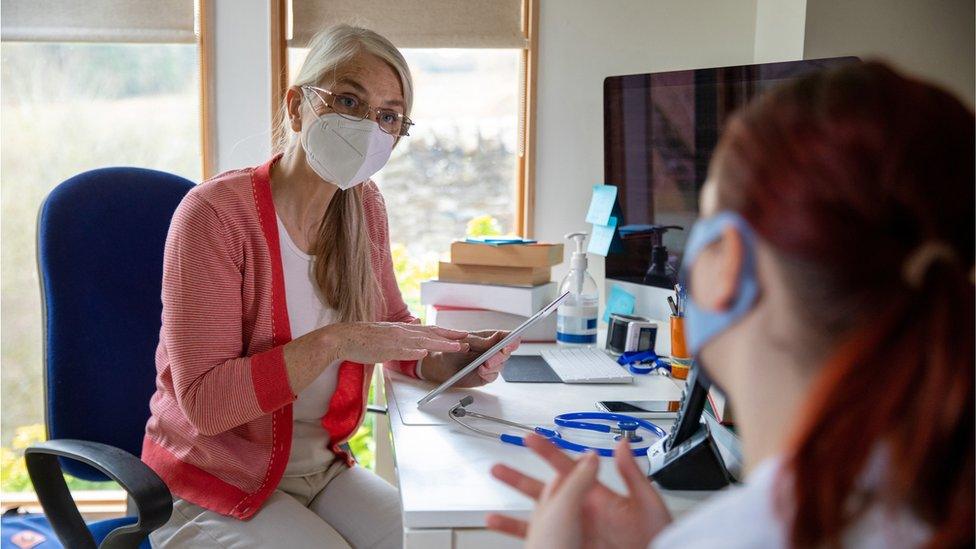
- Published13 July 2021
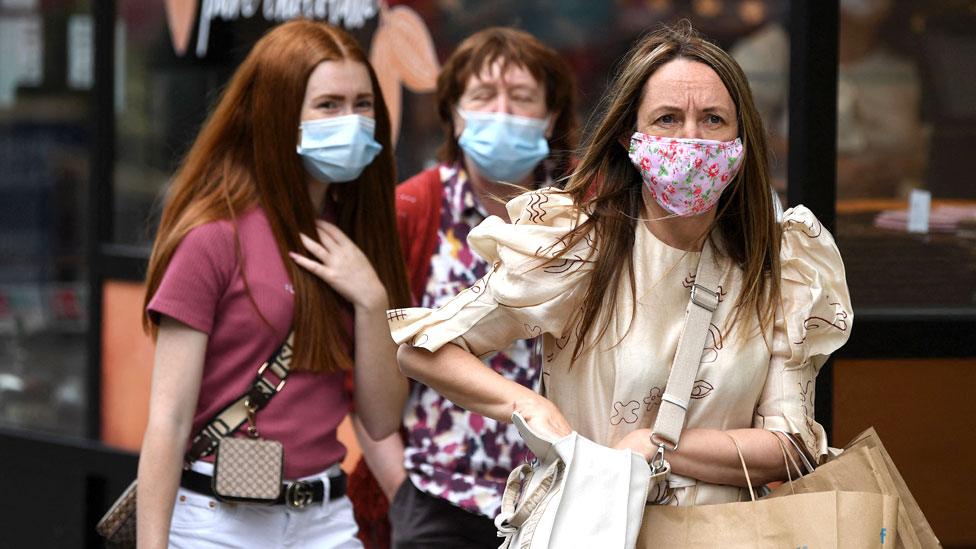
- Published6 July 2021
